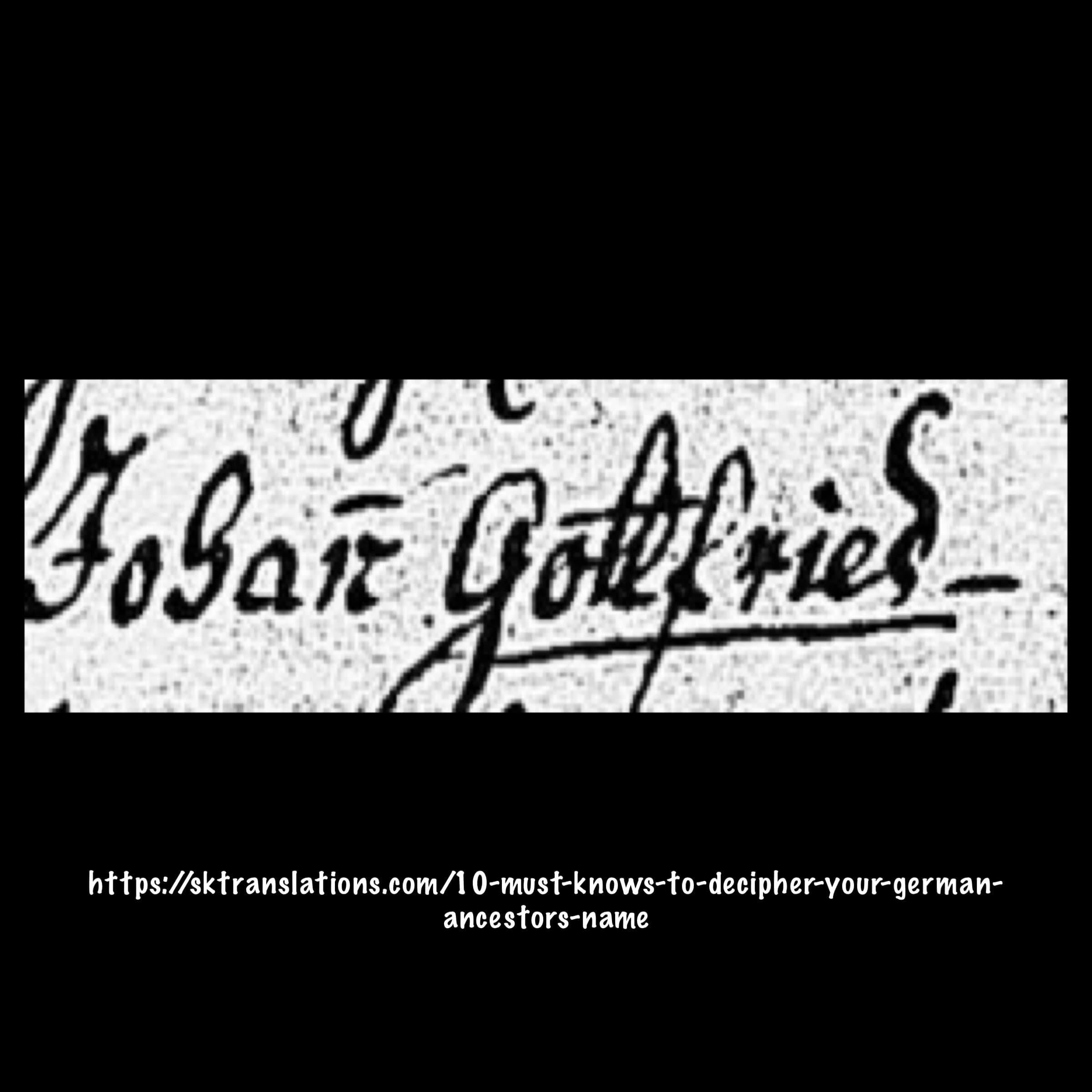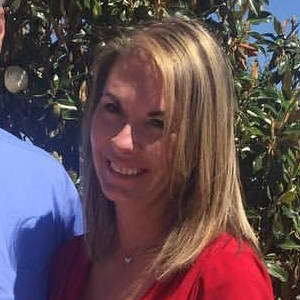Do you have German ancestors? Have you had trouble finding them in German records? Do you think you found them but the names are spelled wrong? Here are a few tips to help you when you are searching for your German ancestors.
As you review various records, have you run across your family's last name but for some reason there was an “in” attached at the end? If you see this don’t think you have a different person and skip on by. The “in” is added as a grammatical marker to show the person is a female. When you translate, just leave off the “in”.
A straight line over a letter in a name usually means that letter will be an “n” or “m” and it should be doubled, nn or mm.
A straight line over a letter in a name usually means that letter will be an “n” or “m” and it should be doubled. To make things even more fun, if the middle name is underlined that would be the name they went by in everyday life.
If an older sibling died in many cases, if the next child was the same sex they got the same name. So if you have two dates, same family, same name this could be what happened. Also, children were sometimes named after their godparent or sponsor. So if you cannot read the child’s name go look at the godparent and see if they are similar looking and you may be able to read it better if they are.
Diminutive suffixes include “chen”, “lein”, “l”, “el”, and “erl”
Have you seen a name that ends in “chen”, “lein”, “l”, “el”, and “erl”? These are diminutive suffixes. So little Barbara would be Barbchen. It is like many Amricans saying Danny for Daniel. You may also see the Latin suffix “us” added on the end of males names in older documents. An example is Jakob may also be Jakobus.
Finally, it will be very helpful to know that in many cases there are multiple spelling variations of names. When you know this and what they may be, it will be easier to do more searches and identify your ancestor properly. My family’s last name in the United States was Mabis. I have found it spelled multiple ways in Germany. Most common was Möebus. I had to do a lot of research on how it could have been spelled before finding it on German records.
There are many places online you can go to get help and get hints in your search for your German ancestors. Knowing some tricks to help you, will make your work much easier and much faster.
We can help
If you need any help finding your ancestors, just let us know.


